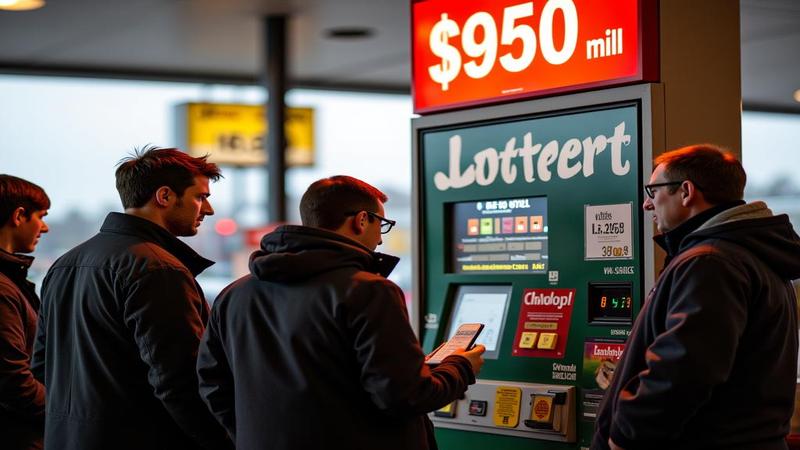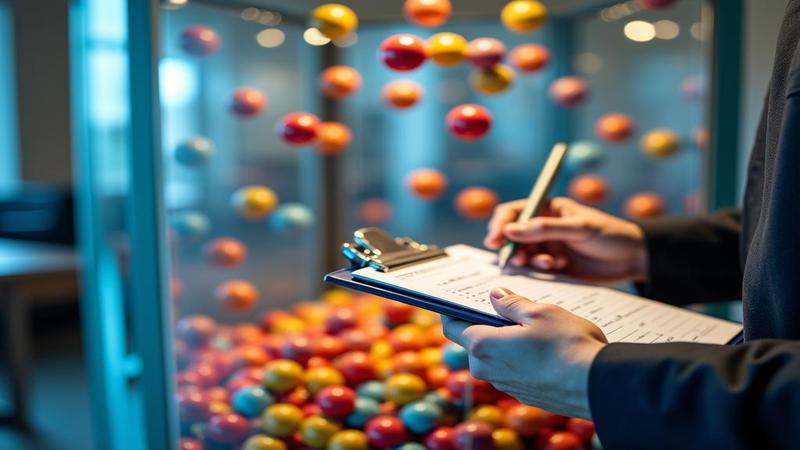Powerball Rolls Over Again, Now Owes America $950 Million in Emotional Damages

Powerball announced it will stop at nothing, including counting, to make hope heavier. After nobody matched all six numbers Wednesday, the jackpot ballooned to $950 million, a sum large enough to fund America’s collective maybe.
Officials said the result continues a proud tradition: the United States remaining undefeated at not winning. The nation’s most reliable growth metric, besides corporate buybacks and pet influencers, is the rolling-over of improbable dreams.
The rules are simple: pick five numbers, then another number, then promise your family you’ll be reasonable when you win and immediately forget that promise. The odds are 1 in 292,201,338, which is also the ratio of people who understand compounding to people who believe destiny owns a scratch-off.
At a gas station that now functions as a cathedral with windshield wipers, pilgrims lined up to tithe. The cashier, adopting the tone of a secular priest, whispered, “Blessed be the quick pick, for it absolves responsibility.”
Marketing has rebranded the jackpot as a “nearly billion-dollar smile experiment,” which is technically accurate if your dentist accepts annuity payments. Customers clutched beverages, dreams, and a lottery ticket scanner keychain, swearing it hums when destiny is within three ZIP codes.
Financial analysts, wearing ties the color of surrender, explained the cash value versus annuity like it’s a personality test for impatience. The one-time, not-at-all-one-time charge is taxes, plus the traditional fees for the right to learn every cousin’s middle name in a week.

Mathematically, each rollover is a PowerPoint that keeps adding slides until the audience proposes marriage. Combinatorics looks scary, but imagine placing 69 marbles into 69 hats blindfolded during an earthquake, and then a red one strolls in like a consultant.
Economists describe the jackpot as a voluntary hope tax that funds education, infrastructure, and the essential civil service of reminding us that probability is a disciplined bouncer at a very exclusive club named Reality.
Office pools thickened by desperation held emergency meetings to draft bylaws that mainly cover what to do about Gary. Someone printed an office lottery pool contract template on letterhead, because nothing says trust like a stapled PDF and a Venmo memo.
Officials promised transparency, which in lottery terms means a ball machine so clear you could read your regrets reflected in it. To ensure fairness, auditors verify each sphere like rare grapes destined for a champagne called Probably Not.
Experts advise future winners to hire an attorney, an accountant, a therapist, and a decoy who loves cameras. Change your number, your address, your haircut, and possibly your definition of “cousin.” Consider anonymity, or, at minimum, sunglasses that imply you once dated a yacht.
Until then, the country will continue its weekly ritual of not winning with the precision of a Swiss watch and the optimism of a golden retriever. See you Saturday, when we all invest in the only index fund that pays exclusively in suspense and “one-time charges” that keep in touch.
